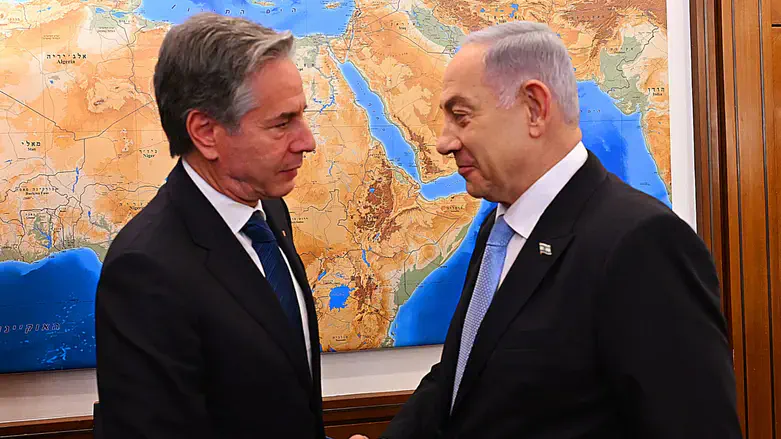
US Secretary of State Antony Blinken, during his visit to Israel last week, told Israeli officials that Washington will support a pre-emptive Israeli strike against Hezbollah equipment or forces poised to launch any imminent attack, The New York Times reported on Thursday, citing a senior US official.
According to the report, in hopes of heading off a dangerous escalation, Blinken also said that Israel should not use the opportunity to mount a broader offensive against Hezbollah.
The New York Times report also said that senior Biden officials breathed a sigh of relief after Israel struck Hezbollah hard but narrowly on Sunday, and the Hezbollah salvo fired in response inflicted limited damage, allowing both sides to claim victory.
According to the report, Biden administration officials argue that the crisis could be much worse if not for their diplomacy.
The Pentagon assesses that its buildup of American military force in the region has at least for now deterred Iran and its proxies from carrying out a broader attack against Israel, spokesman Pat Ryder said on Monday.
However, according to The New York Times, American intelligence and military officials say that Iran could still avenge the killing of Hamas political leader Ismail Haniyeh in Tehran, for which Israel has not claimed responsibility.
The chairman of the Joint Chiefs of Staff, General Charles Brown, told Reuters on Monday that the near-term risk of a broader war in the Middle East has eased somewhat after Israel and Hezbollah exchanged fire without further escalation, but Iran still poses a significant danger as it weighs a strike on Israel.
Brown spoke to Reuters after a three-day trip to the Middle East, which included a stop in Israel, where he met Defense Minister Yoav Gallant, one day after Hezbollah launched hundreds of rockets and drones at Israel, and the IDF struck Lebanon to thwart a larger attack.
Brown noted Hezbollah's strike was just one of two major threatened attacks against Israel that emerged in recent weeks. Iran is also threatening an attack over the elimination of Hamas political bureau leader Ismail Haniyeh in Tehran last month, which Israel has not commented on.
Asked if the immediate risk of a regional war had declined, Brown replied, "Somewhat, yes."
"You had two things you knew were going to happen. One's already happened. Now it depends on how the second is going to play out," he added.
"How Iran responds will dictate how Israel responds, which will dictate whether there is going to be a broader conflict or not," said Brown, who also cautioned that there was also the risk posed by Iran's allies in places such as Iraq, Syria and Jordan who have attacked US troops as well as Yemen's Houthis, who have targeted Red Sea shipping and even fired drones at Israel.
"And do these others actually go off and do things on their own because they're not satisfied - the Houthis in particular," Brown told Reuters.
Brown also said the US military was better positioned to aid in the defense of Israel, and its own forces in the Middle East, than it was on April 13, when Iran launched an unprecedented drone and missile attack on Israel.
White House National Security Council spokesman John Kirby recently told CNN that US intelligence indicates that Iran has not backed down from its threat to attack Israel.
Previously, Ryder told reporters that an attack by Iran on Israel is "certainly possible", adding that the threat needs to be taken seriously so more resources are being maneuvered to the region.
